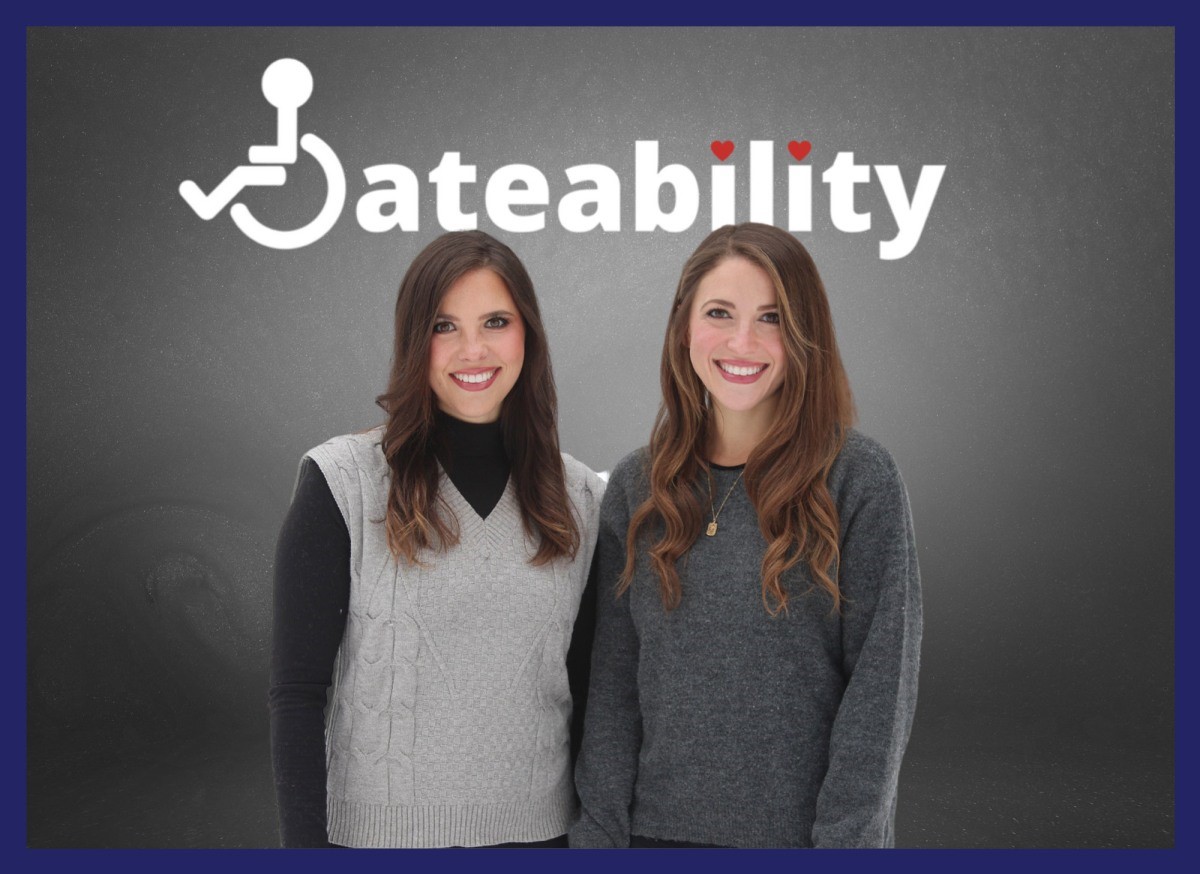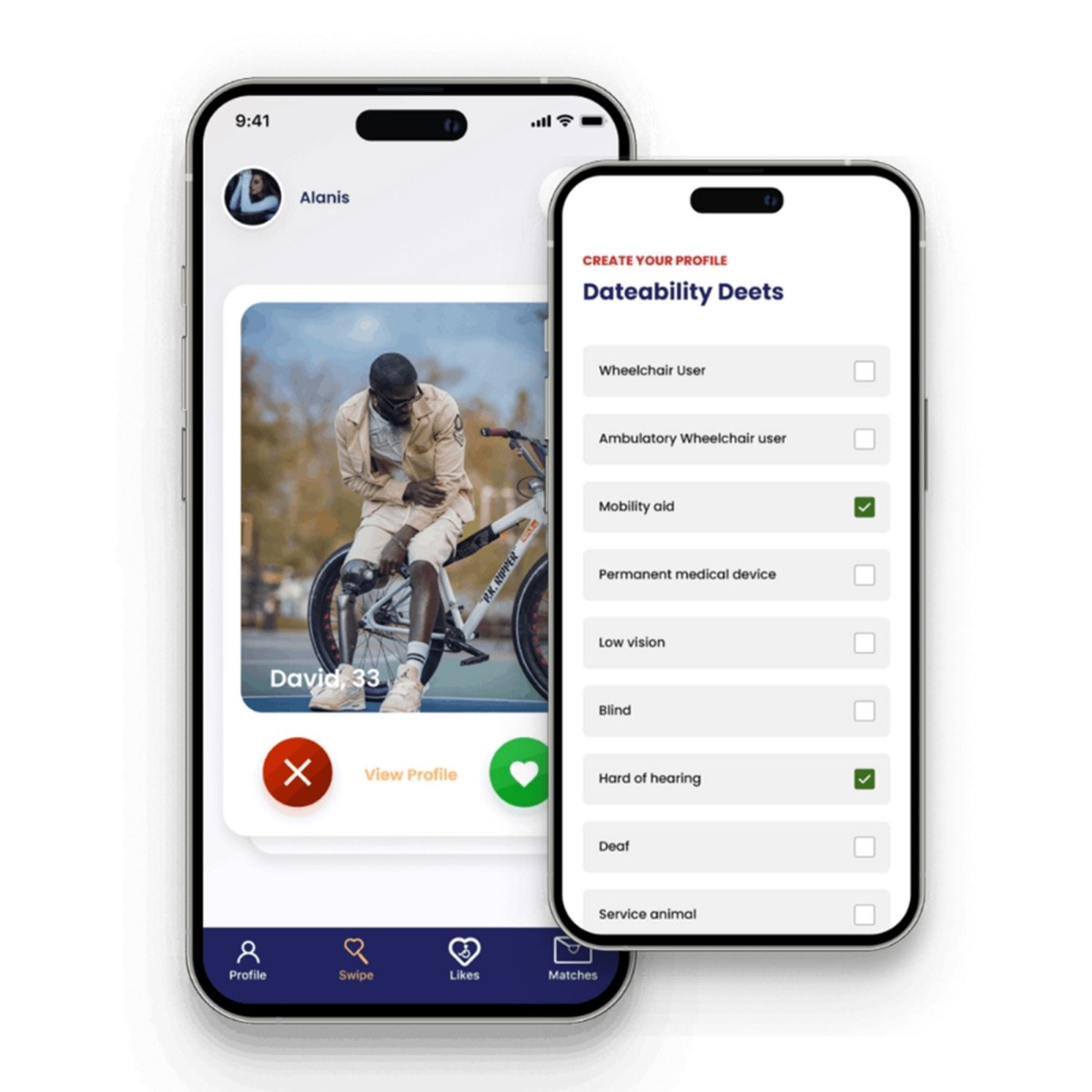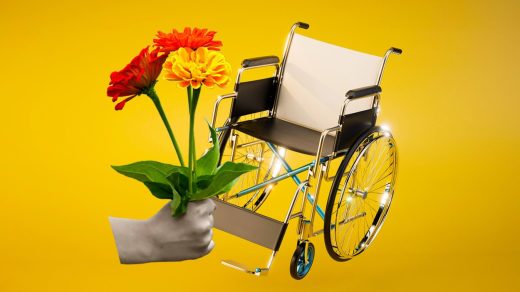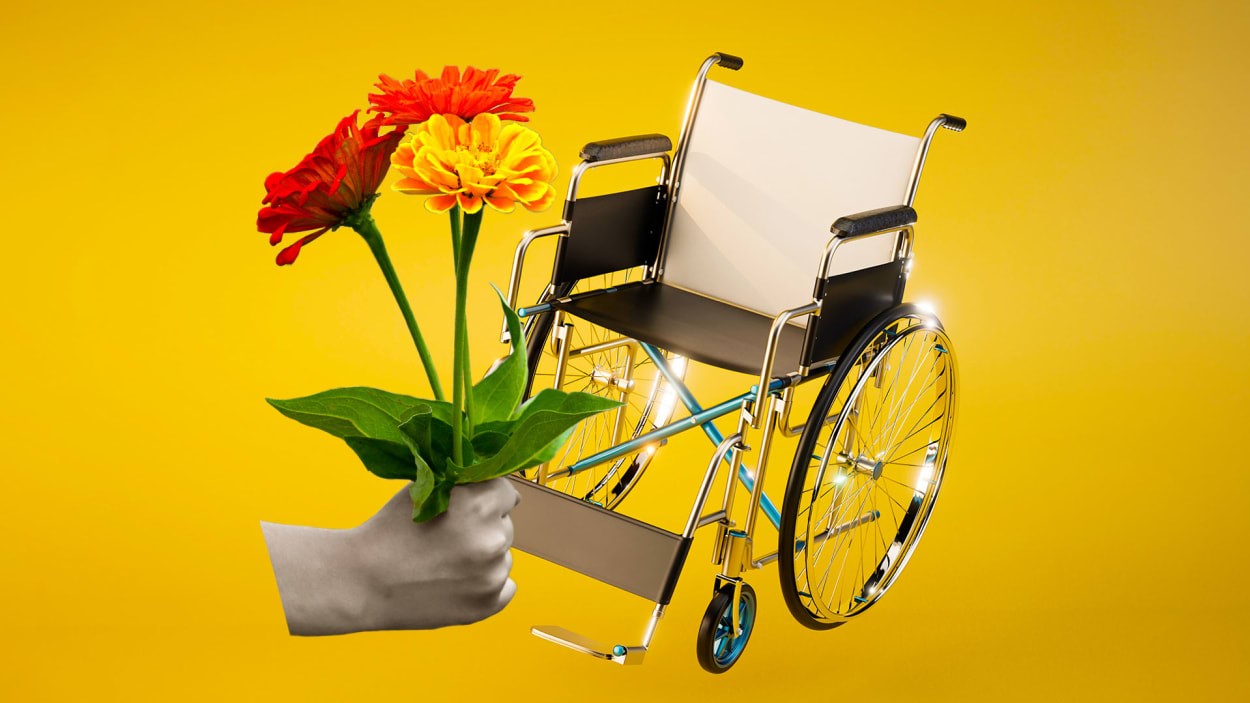Meet the CEO sisters who want to change the conversation around dating and disability
When Jacqueline Child moved in with her sister, Alexa, after college, she realized there was a vast difference in the responses that the two of them were getting on dating apps, even though they had similar interests and values. Child, 29, has a cornucopia of chronic illnesses. She kept running into—for lack of a better word—assholes.
“People told me I was a burden, it was too stressful to date me, or just ghosted,” she says. One man even told her that having children would be selfish because she might pass along her conditions.
In 2021, Child made the decision to get a feeding tube—something she’d been putting off because she was afraid of how it would impact her dating prospects, even though it would prolong her life. From her hospital bed one day, she told her sister, “I wish there was a dating app for people like me.”
“Let’s do it,” Alexa replied.
A year later, they launched Dateability, an app designed for people with disabilities or chronic illnesses. The app, whose mission is to make love accessible for everyone, currently has a user base of more than 8,000. The sisters bootstrapped the app but continue to struggle with funding. According to one study, 92% of disabled entrepreneurs said there is a lack of focus on investment opportunities for disabled founders, and 84% report not having the same access to opportunities as the general population.
Fast Company chatted with Jacqueline and Alexa Child about the road to building Databililty and what it means to gain the trust of the disability community.

Fast Company: Tell me about the app. How is it different?
Alexa Child: I felt like disclosure was really hard for Jacqueline and figuring out how and when and what the reaction would be like. We have a Dateability Deets profile section. It’s an extensive list of broad terms used to describe oneself, like immunocompromised, permanent medical device, wheelchair user, food allergy, no diagnoses. It’s optional, but it’s there to reduce the anxiety one may feel when having to disclose.
I think it sends a signal to our users that we don’t view disability as a negative or something you should be ashamed of. We put it under the basic information section of your profile because it’s just a neutral fact about you. It’s both a conversation starter and really helps people feel less alone. We’ve gotten very good feedback from it. We also have a type-in option for additional diagnoses. And then that leaves the bio to talk about their interests and who they are as a person beyond their disability. Whereas usually on the other apps, people have to use their bio to explain certain things about their lives.
Jacqueline Child: We decided to do a user-generated algorithm, meaning everyone who fits within your preferences will show up, instead of having an algorithm that suggests top matches. When you are going to a bar, there’s not a bouncer who’s vetting who you see. You just have as many options as possible. We’re also free. That was extremely important to us. So many times the disabled community is scammed or promised something that just doesn’t work.
FC: What’s the business model if users aren’t paying?
JC: We’re pre-revenue. We plan to start monetizing via ads. In the future, we’ll have a subscription model. Luckily, the other dating apps have created that business model, and it’s proven to be successful. So we’ll just hop on that.

FC: What are the unique trust challenges you’ve faced with this audience?
JC: People in the community have been burned a lot. People sometimes have been very skeptical of our motives. It’s been really helpful for us to put our faces out there and for me to tell my story. I’ve never spoken about my chronic illness in such depth before this, but being relatable has helped.
AC: I also think our customer service helps a lot too. People will email us if something doesn’t go their way, and we email back personally with a tailored message. We will share experiences that we have had, or really more Jacqueline has had; we can see the response, like the follow-up response is totally different. They do a 180.
Also, safety is a top priority. Many people—not everyone—view the disabled community as more vulnerable. We have a safety tutorial with tips and red flags; we think education is the best way to keep our users safe. And then we also introduced a profile verification feature.
JC: We are super vigilant about bots and spammers. We immediately deactivate them. We don’t care if that affects our retention rate. Another point is, we have seen a lot of internalized ableism within our community, and that, specifically, it’s more with men. [Them] expressing their concerns that someone isn’t real because they’re attractive. It’s heartbreaking because you know that it’s because society has told you that you can’t be attractive and disabled at the same time.
AC: There is this notion that disabled people don’t want to have sex, or they don’t want to have casual relationships. We’ve been told that we shouldn’t be a hookup app, or just even a friendship app, and I say to that, Who am I to tell our users what kind of relationships they should have? We really want to change the conversation around dating and disabled people.
FC: When you’re representing a minority, there’s often a double bind. You are critiqued by gatekeepers in greater society and in the community you are representing. How do you deal with that?
JC: That’s so true. Even (September 26, 2023), we did a post on Facebook. Some people are so enthusiastic about it—”this is so needed”—but then someone will say this app is ablest because you’re suggesting that only disabled people should date disabled people.
AC: Or that I was limiting your dating pool.
JC: Oh, yeah, like Alexa has the control. I was like, one, there’s one billion people in this world with disabilities, and also, my sister does not control my dating life. I think it comes back to . . . people being very protective of their community. And I can respect that. And then outside of the community, people just don’t necessarily consider it might be hard for a disabled person to date. Twenty-five percent of us are disabled, but we’re not often thought of as a minority. We see this when contacting VCs—they have a list of minorities, and “disabled” is not on there.
AC: We do encourage non-disabled people do join; about 7% of our user base is just an ally and is not disabled. And I think it’s a great way to filter out all those people who will discriminate against you on the other dating apps. I also think people really underestimate the importance of shared values, of shared perspective. You know, I struggled on the other dating apps because I felt like people didn’t view privilege and service the way I did.
FC: Are you both on the app? How’s that going?
JC: It’s proven to be difficult because I’m so busy. How am I supposed to date now that I’m a CEO? But it’s so cool to see people using it, and I’m still very confident that that’s where I will meet my person . . . but life needs to settle down a little bit for me to enjoy it.
(23)



